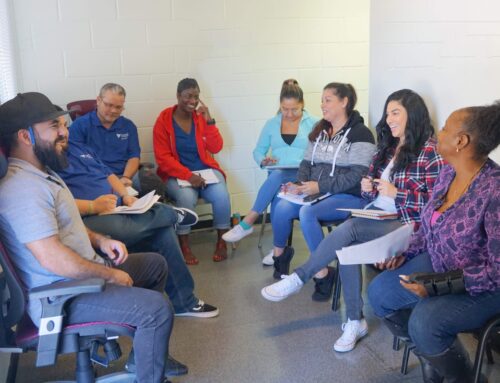Breaking Down the Stages of Early Childhood Development
From the moment they are born, young children are constantly learning. If you’re a parent or a teacher, you know first-hand how rapidly child growth can occur.
While every young child develops at their own pace, most children reach certain milestones at specific stages of development. These milestones indicating healthy development include physical, cognitive, social, and emotional achievements.
By understanding these milestones, you can monitor a child’s development and seek guidance from a physician if you notice them falling behind in their early years.
Early Childhood Development Stages
If you’re curious about the stages of early childhood development, here is a breakdown of what to expect at each age:
Birth to Three Months
Newborn babies take in the world around them like a sponge. Everything is brand new to them. They rely on their five senses to understand their surroundings.
According to Erikson’s Stages of Development, babies are continuously evaluating whether or not they can trust the world and their caretakers. For this reason, they take great comfort in hearing their parents’ voices, listening to them sing, and receiving gentle hugs and kisses.
Some notable milestones that infants experience in the first few months are:
- Stretching and kicking
- Reaching for their hands and feet
- Lifting their head during tummy time
- Grasping people’s fingers
- Watching people who are nearby
- Responding to loud noises
- Smiling and cooing
Four to Six Months
When babies are between four and six months old, they become physically strong enough for new activities like grabbing and sitting up. But it’s not just their body that’s changing—at this stage, babies’ social abilities also improve.
As a result of healthy development, you may notice them:
- Laughing, squealing, and babbling
- Smiling more often
- Imitating noises
- Sitting upright in a chair
- Rolling over and bouncing
- Successfully holding toys
- Putting objects in their mouth
Seven to Twelve Months
Once babies approach the one-year mark, they become much more mobile and interactive with their surroundings and loved ones. Their early childhood settings are developing physically in leaps and bounds.
You might observe babies:
- Crawling, standing, and possibly walking with some assistance
- Using furniture to help themselves stand up
- Dancing to music
- Enjoying games like peek-a-boo
- Waving goodbye
- Putting things in containers
- Understanding their name
- Saying simple words, like “mama,” “dada,” and “baba”
During this stage of childhood development, babies also start to enjoy each others’ company, which can be very cute to witness.
One Year
When children are a year old, they become increasingly interested in exploring their surroundings and learning new skills.
During this year, they usually achieve these milestones:
- Beginning to walk, run, and climb up the stairs
- Understanding and saying more words
- Being able to eat with a spoon and fork (though spilling is bound to happen)
- Being able to identify body parts, like their eyes, nose, and mouth
- Enjoying playtime with toys, balls, and blocks
- Enjoying stories and games
- Starting to draw
Two Years
Once children are two, they begin to explore their identity. They are aware that they’re their own person, separate from Mom and Dad. Two-year-olds will start referring to themselves as “me” and “I” more often. The concept of “mine” will become very important. In their early years, they may even become a little bossy.
While two-year-olds understand a lot of words and ideas, they don’t yet have the language to communicate clearly. This struggle to be understood can make two-year-olds feel very frustrated and prone to tantrums. As a result, this stage of child growth is commonly referred to as the “terrible twos.”
Toddlers possess newfound mobility and balance, enabling them to explore their environment more than ever before. They should also be able to:
- Brush their teeth
- Wash their hands
- Put on clothes
- Walk and run
- Kick a ball
- Open doors
- Sort objects by different shapes
- Draw circles
- Cut paper
- Say their first and last name
- Imitate other’s behavior
- Play make-believe
Three to Four Years
From age three to four, children usually begin preschool. During this time, they undergo incredible social development as they interact with their peers, teachers, and family. This stage features some of the most rapid cognitive development in early childhood.
During these years of early education, children become much better at following simple directions. They also begin to read, draw, and develop some potty training skills. These skills improve as their fine motor skills and hand-eye coordination develops.
This stage is characterized by:
- Being able to go up and down the stairs by themselves
- Kicking and throwing balls
- Catching a ball with two hands
- Saying more words with their proper grammatical endings (-ed, -ing, etc.)
- Speaking well enough for strangers to understand them
- Asking lots of “why” and “how” questions
- Telling stories and having a vivid imagination
- Identifying colors
- Understanding the concept of time
- Following simple, three-step commands
Five Years
Once a child is five-years-old, they’ll probably be entering kindergarten. During this stage, children develop much more independence, confidence, and social skills.
Typical development of a child’s ability during this stage includes:
- Having a longer attention span
- Playing with others more cooperatively and taking turns
- Understanding others’ feelings
- Using the toilet by themselves
- Counting to 15
- Following basic directions
- Being able to repeat a full-sentence
- Writing letters without tracing them
As five-year-olds build confidence in their abilities, they benefit from structure and support in school and at home.
Early Childhood Development Programs
As you can see, early childhood is an amazing time. However, if you suspect that your child is experiencing a developmental delay, you can seek guidance from your family physician. They will screen your young child for any physical or cognitive delays. If you need to see a health specialist, your primary physician can give you a referral.
You can also support your children’s development with an Early Head Start Program offered by the Volunteers of America Southwest. At Volunteers of America Southwest, we want to meet you where you are and guide you to a fuller, more healthy life for you and your loved ones. Get started today with our home-based child and family services program.
Sources:
HealthyChildren.org. Ages & Stages.
https://www.healthychildren.org/English/ages-stages/Pages/default.aspx
NCBI. Eriksons Stages of Psychosocial Development.


